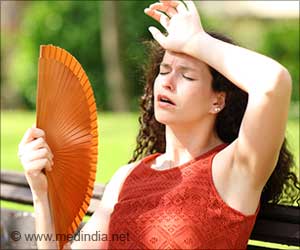- Drink plenty of water to stay hydrated and energized during the summer
- Opt for light, frequent meals and avoid heavy, fatty foods
- Exercise during cooler parts of the day and take breaks to avoid overexertion
Summer is a time for fun, sun, and relaxation. However, it can also bring about a lesser-known issue: summer fatigue. This condition can be more dangerous than you might think, impacting your health and daily life. Let’s look at why summer fatigue happens and how you can combat it effectively.
’
Advertisement
What is Summer Fatigue?
summer lethargy, Why is Summer Fatigue Dangerous,
Summer fatigue, often referred to as “summer lethargy,” is a feeling of constant tiredness and low energy during the hot months. Unlike regular tiredness, summer fatigue doesn’t go away with rest. It can make you feel sluggish, irritable, and unmotivated. This condition can affect anyone, but it’s more common in people who spend a lot of time outdoors or those who live in areas with high temperatures and humidity (1).
Advertisement
Why is Summer Fatigue Dangerous?
Summer fatigue can be more than just an inconvenience. If left unchecked, it can lead to several health issues, including:
Dehydration:
The heat causes your body to sweat more, leading to a loss of fluids and essential electrolytes. Dehydration can cause headaches, dizziness, and even fainting.
Heat Exhaustion and Heat Stroke:
These are serious conditions that occur when your body overheats. Symptoms include high body temperature, confusion, rapid heartbeat, and nausea. Heat stroke, in particular, can be life-threatening and requires immediate medical attention.
Reduced Physical and Mental Performance:
Fatigue can impact your ability to work, exercise, and even think clearly. This can lead to accidents and injuries, especially if you’re driving or operating machinery.
Worsening of Chronic Conditions:
For those with chronic health conditions like heart disease or diabetes, the added strain from summer fatigue can worsen their symptoms.
Advertisement
Causes of Summer Fatigue
Understanding the causes of summer fatigue can help you take steps to prevent it. Some common causes include:
Heat and Humidity:
High temperatures and humidity levels can make your body work harder to cool down, leading to exhaustion.
Dehydration:
As mentioned earlier, not drinking enough fluids can cause your body to lose essential electrolytes, leading to fatigue.
Poor Sleep:
Hot nights can disrupt your sleep, leading to tiredness during the day.
Overexertion:
Engaging in strenuous activities in the heat can quickly wear you out.
Diet:
Eating heavy, fatty foods in the heat can make you feel sluggish.
Tips to Beat Summer Fatigue
Fortunately, there are several strategies you can use to combat summer fatigue and stay energized throughout the season. Here are some tips to help you beat the heat and laziness:
Stay Hydrated:
Drinking plenty of water is crucial during the summer. Aim for at least 8-10 glasses of water a day (2). You can also consume hydrating foods like watermelon, cucumber, and oranges. Avoid sugary drinks and excessive caffeine, as they can lead to dehydration.
Dress Appropriately:
Wear lightweight, loose-fitting, and light-colored clothing. Fabrics like cotton and linen are breathable and help keep your body cool (3). Don’t forget to wear a hat and sunglasses to protect yourself from the sun.
Eat Light and Healthy:
Opt for smaller, more frequent meals instead of heavy, large ones. Include plenty of fruits, vegetables, and lean proteins in your diet. Foods rich in water content, such as salads and smoothies, can help keep you hydrated and energized.
Take Breaks:
If you’re spending time outdoors or engaging in physical activities, make sure to take regular breaks in the shade or a cool place. This helps your body recover and prevents overheating.
Adjust Your Exercise Routine:
Consider working out during the cooler parts of the day, such as early morning or late evening. You can also switch to indoor activities like yoga, swimming, or going to the gym. Always listen to your body and avoid overexertion.
Get Quality Sleep:
Ensure your bedroom is cool and comfortable. Use fans or air conditioning if needed. A cool shower before bed can also help lower your body temperature. Aim for 7-9 hours of sleep per night to keep your energy levels up.
Limit Alcohol Intake:
Alcohol can dehydrate you and disrupt your sleep patterns. If you choose to drink, do so in moderation and make sure to drink plenty of water.
Listen to Your Body:
Pay attention to how your body feels. If you’re feeling tired, take a break and rest. Ignoring signs of fatigue can lead to more serious health issues.
Stay Indoors During Peak Heat:
Try to stay indoors during the hottest part of the day, usually between 10 a.m. and 4 p.m. If you need to be outside, make sure to take necessary precautions like wearing sunscreen and staying in the shade whenever possible.
Manage Stress:
High-stress levels can contribute to fatigue. Practice stress-reducing techniques such as meditation, deep breathing exercises, or spending time on hobbies you enjoy.
Summer fatigue is a real and potentially dangerous condition that can affect your overall well-being. By understanding its causes and implementing these tips, you can beat the heat and stay energized throughout the summer months. Remember to stay hydrated, dress appropriately, eat light, and listen to your body. With these strategies, you can enjoy a healthy, active, and fatigue-free summer.
Stay cool, stay safe, and have a fantastic summer!
References:
- Fatigue and sleep under large summer temperature differences
Fujii H, Fukuda S, Narumi D, Ihara T, Watanabe Y. Fatigue and sleep under large summer temperature differences. Environ Res. 2015 Apr;138:17-21. doi: 10.1016/j.envres.2015.02.006. Epub 2015 Feb 13. PMID: 25682254. - Water in summer heat, but how much?
Sane T. Vettä kesähelteellã–mutta kuinka paljon? [Water in summer heat, but how much?]. Duodecim. 2011;127(13):1361-5. Finnish. PMID: 21834340. - The Role of Sports Clothing in Thermoregulation, Comfort, and Performance During Exercise in the Heat: A Narrative Review
Di Domenico I, Hoffmann SM, Collins PK. The Role of Sports Clothing in Thermoregulation, Comfort, and Performance During Exercise in the Heat: A Narrative Review. Sports Med Open. 2022 Apr 28;8(1):58. doi: 10.1186/s40798-022-00449-4. PMID: 35482166; PMCID: PMC9051004.
Source-Medindia



